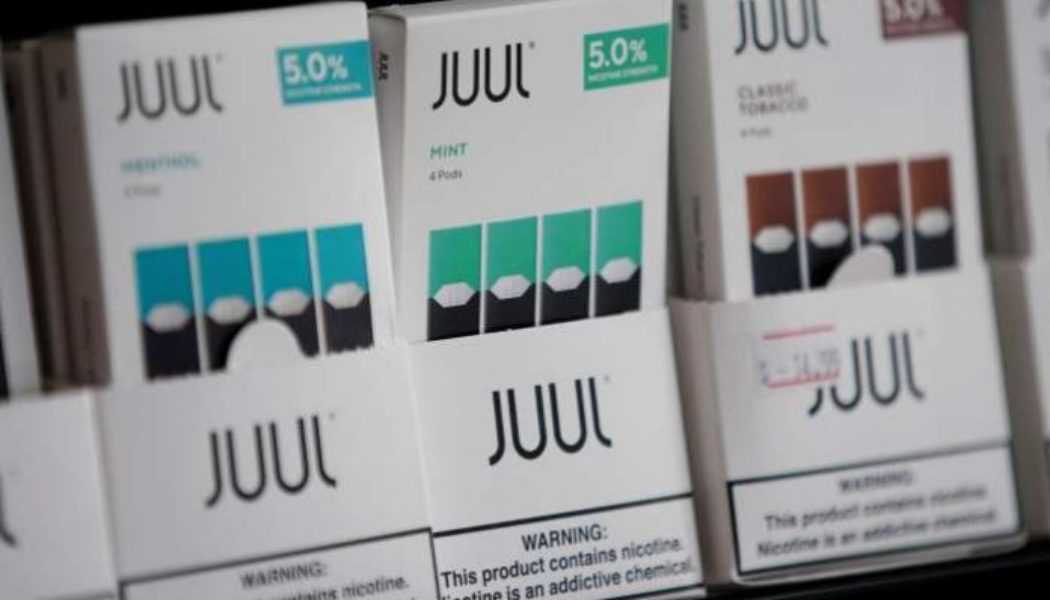![Juul, which is partially owned by Altria Group Inc, has seen sales fall after halting all advertising and social media promotion and pulling most of its flavours except for menthol [File: Elijah Nouvelage/Reuters] Juul, which is partially owned by Altria Group Inc, has seen sales fall after halting all advertising and social media promotion and pulling most of its flavours except for menthol [File: Elijah Nouvelage/Reuters]](https://www.today.ng/wp-content/uploads/2021/06/28185112-696x464.jpg)
Electronic cigarette giant Juul Labs Inc will pay $40m to North Carolina and take more action to prevent underage use and sales, according to a landmark United States legal settlement announced on Monday after years of accusations that the company had fueled an explosion in teen vaping.
A state judge accepted the first-of-its-kind agreement with a US state. North Carolina Attorney General Josh Stein had sued Juul, accusing it of employing unfair and deceptive marketing practices that targeted young people to use its vaping products, which deliver addictive nicotine.
As part of the agreement, Juul will not advertise to anyone under 21 in North Carolina and will limit sales amounts of Juul products online to any state residents. It will also sell its products only behind counters at retailers that have ID scanners to ensure customers are of age.
Teen use of e-cigarettes skyrocketed more than 70 percent after Juul’s launch in 2015, leading the US Food and Drug Administration to declare an “epidemic” of underage vaping among teenagers. Health experts said the unprecedented increase risked hooking a generation of young people on nicotine, an addictive chemical that is harmful to the developing brain.
“This win will go a long way in keeping Juul products out of kids’ hands, keeping its chemical vapor out of their lungs, and keeping its nicotine from poisoning and addicting their brains,” Stein said in a news release.
Juul, which is partially owned by Altria Group Inc, has seen sales fall after halting all advertising and social media promotion and pulling most of its flavours except for menthol.
“This settlement is consistent with our ongoing effort to reset our company and its relationship with our stakeholders, as we continue to combat underage usage and advance the opportunity for harm reduction for adult smokers,” Juul said in a statement after the court hearing. “We seek to continue to earn trust through action.”
Several US states have filed their own lawsuits against Juul. A group of 39 state attorneys general has been cooperatively investigating the company’s marketing and products since February 2020.
Juul also faces hundreds of personal injury lawsuits from customers and families of young people who said they were hurt or addicted by the company’s products. Those have been consolidated in a California federal case.
Stein filed the lawsuit in state court in Durham, a central North Carolina city that is home to Duke University. Both the city and the school grew substantially in the 20th century thanks to tobacco production. North Carolina is the number-one producer of flue-cured tobacco in the country.
The connection to Durham wasn’t lost on Stein, who said he recalls travelling to the city to tour the now-shuttered Liggett & Myers cigarette manufacturing facility when he was in elementary school.
“The whole town smelled of tobacco,” Stein told reporters after the hearing. “When we thought about bringing this case, we thought that there was some symbolism to bring it here.”










